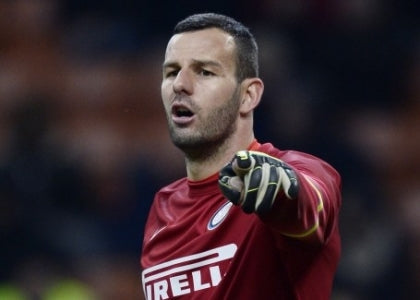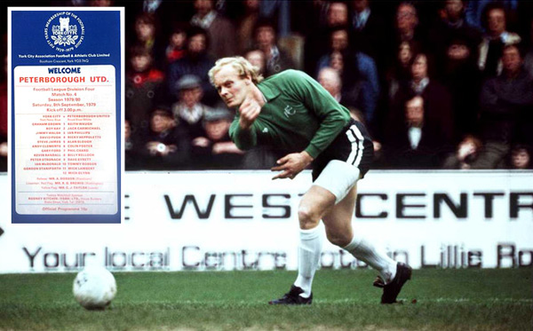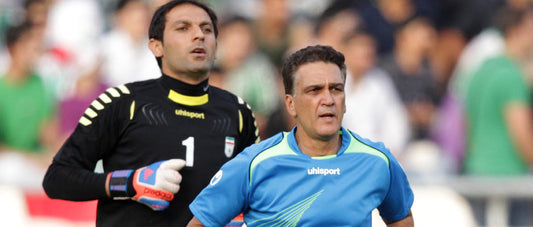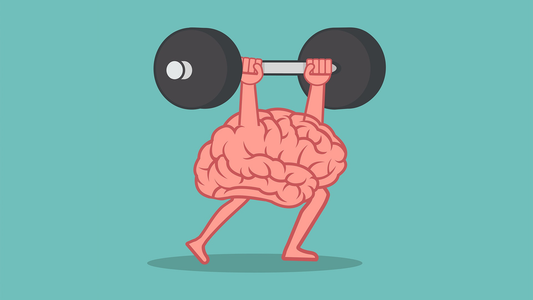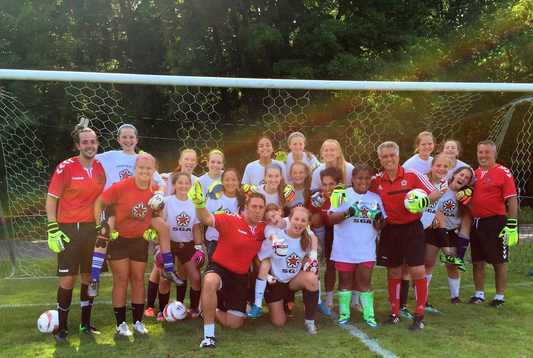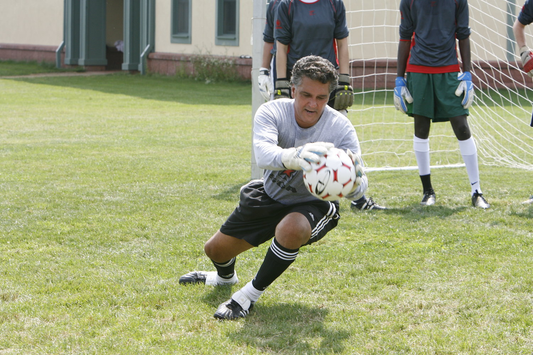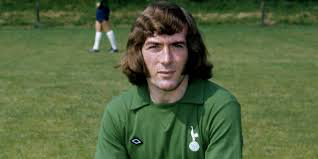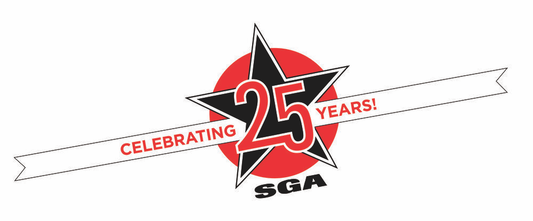As goalkeepers, we are under a lot of stress and expectation from our teammates and coaches. The smallest mistake can lead to a goal and easily ruin your entire game. We have to be able to handle the pressure that comes with our position and use our mind to perform at our best. Psychological training should be a vital part of your training routine to be able to deal with the pressures that come with goalkeeping. Meditation and yoga are becoming more prevelant in soccer, so you should consider adding them to your training routine.
Goalkeeper Psychology
What It Takes To Be The Best Goalkeeper
Click here for PDF of the article!
The ultimate goal of any young goalkeeper and player is to play for his/her national team and represent their country. But, what gets us there? Of course a youth goalkeeper has to be technically gifted with handling, diving, crosses, distribution, and communication. It is not about looking the part with the best goalkeeper glove and the newest goalkeeper kit or jersey; its what is on the inside. To truly be the best goalkeeper and soccer player and achieve a lot of success in the game you need a the proper ATTITUDE, strong COMMITMENT to succeed, and you must SACRIFICE.
Courtesy of www.oneononesoccer.com. By Glenn “Mooch” Mynerick. Myernick was Bruce Arena's assistant coach at two World Cups and the 1996 Olympics. He served as a U.S. Soccer coach twice (1992-97 and 2001-present). He coached the U.S. U-17s at the 1995 Under-17 World Championship and the U.S. U-23s in CONCACAF qualifying for the 2004 Olympics.
Age Considerations for Goalkeepers
USSF: Age Considerations for Goalkeepers
Goalkeeping Age Objectives
Distributed by US Soccer-Peter Mellor National Teams Goalkeeping Coach and Coordinator
Technical: Tactical:
Psychological: Fitness:
Technical:
Tactical: Psychological:
Fitness: to set position.
Technical:
6-8 Year Olds
Hand Eye coordination and balance games. Rotation of all players through the goals so that every player is exposed to Goalkeeping. Let the game be the teacher. FUN, FUN, FUN, games must be enjoyable. FUN movement games.
8-10 Year Olds
Principles of Goalkeeping Footwork Exercises Getting Set (feet) General Handling Techniques-Thrown service-All Heights-Small Goal Distribution-Rolling and Throwing to a teammate, Control and Short Passing w/ both feet, Short volleying from the hands both feet, Striking a still ball.
Ball Familiarity (size 4) Rotation of players through the team. Everybody plays in each position FUN and enjoyable, Simple Progression of Techniques-“One Step at a Time”. Teach Warm up-Cool Down and Stretching Exercises, from down to the ground and up
10-12 Year Olds
Principles of Goalkeeping Footwork Exercises Getting Set General Handling Techniques Basic Diving Techniques-General Breakdown of them Dealing with Crosses-Thrown Services Distribution-1st touch receiving, control and short passing w/ both feet, Under arm
bowling, side and overarm Throwing to targets, Volleying from the hands, Goal kicks
1v1 Basic Principles
“Quality Not Quantity”
Tactical: Explain the basic tactical role of the goalkeeper-Positional Play-Basic Angle play-Into line and down the line of
The flight of the ball (“Attacking the ball”)
Psychological: Simple progression in techniques-Set Standards, Pay Attention to Detail-What Qualities Does a Goalkeeper Need?
Fitness: Warm Ups and Cool Downs Introduction to the Importance of Stretching
Flexibility and Mobility Exercise (Footwork) Check Height, Weight, and Vertical Jump 3 times per year (Jan/May/Sept-keep records)Technical:
Recovery Save
12-14 year olds
Principles of Goalkeeping Set Position/General Handling-Techniques all Heights Shot Stopping Decision Making Techniques of Catching/Deflecting and Boxing Diving Techniques-Collapse Save/Step and Save/Step Power and Save/Reaction Save/
Dealing with Crosses-Chipped Serve/Catching, Punching both unopposed and opposed
Distribution-Dealing with the back pass both unopposed and opposed-Importance of support, all techniques of
Throwing (Roll, Sidearm, Overarm). Goal Kicks/Volleying and Introduction to Half Volleying 1v1 Principles “Quality not Quantity”
1v1 w/the defense Distance of support to the defense Communication (Quality not Quantity) Functional and Game Related Practices/Small Sided Games/Decision Making Introduction and training in the full size Goal with markings, as often as possible.
Tactical:
Motivational/Technical Talks 10-15 minutes maximum. “The Full Size Goal”-Dealing with the problems that
Psychological:
Fitness:
records)
Technical:
Will arise in the match.
Match and Training Preparation Growth and Development-Diet and Nutrition-Lifestyle Dealing with both Positive and Negative Assessments (Praise and Criticism) Dealing with the Selection and tryouts both positive and negative results. Soccer Terminology
Warm ups and Cool downs Plyometric exercises. Goalkeeper specific stretching Footwork all directions/planting of feet for change of Lateral direction Speed-18 yards Max distance (Penalty Box)
Check Height/Weight and Vertical Jump 4x per year-(Jan/April/July/October-Keep
14-16 Year Olds Principles of Goalkeeping (Paying attention to detail).
Footwork/set positions/General Handling Techniques All Diving Techniques-Collapse/Step and Save/Step Power and Save. Narrowing the Angle Shot Stopping/catch or deflect/Recovery Save Practices to improve reactions Dealing with Crosses-Served from all areas/angles Unopposed and Opposed and in
Functional Practices and Small Sided Games
Distribution-Dealing with the Back pass with pressure, giving good angles and Distance of support, Giving Quality
Communication/Control-First Touch/Both Feet, Variation of pass.
Goal Kicks/Volleys/Half Volleys/Introduction/practice of the technique of the side volley (Central/South American)
Tactical:
Improved Range and power and Variation in Throwing techniques Video Analysis of their own techniques (if possible) Training/Matches Feedback
“Quality Not Quantity”
Key issues in distance of support including recognizing pressure on and off the ball.
Communication-working with the defensive unit to build up understanding of each others strengths and
Psychological:
Fitness:
Keep records)
Weaknesses responsibilities
Presence Knowing position of teammates Making small adjustments often to stay in line with the ball (footwork) Game Related Situations-Functional and Small Sided Games-11v11 Organization in Defending Set Plays on Free Kicks and Corner Kicks
Motivational Talks/Videos-15 minute maximum Team Discussions/Presentations Training and Match Preparation Lifestyles/Discipline
Living Away from Home Dealing with Competition Physical Confrontations Dealing with Pressure-Internal/External Dealing with both Success and Failure
Warm ups and Cool downs Stretching, Flexibility, Mobility and Strengthening Exercise. Plyometric Exercises Recovery Exercises Introduction to Agility Exercises-low intensity/low reps Weight Training-low Weights/High reps Footwork All directions (all Goalkeeping movements). Speed-20 Yards Maximum Check Height, Weight, and Vertical Leap 6 x per year (Jan/Mar/May/Jul/Sept/Nov-
Check body fat
Preparing Goalkeepers For Training and Games
By: Dan Gaspar, Founder of Star Goalkeeper Academy and international renowned goalkeeper coach.
You can have an average team with a good goalkeeper and that team is a competitive team. You can have an average goalkeeper on a good team and that team becomes very average. The role of the goalkeeper is key to the success or failure of the team. The goalkeeper is as an important player as a baseball pitcher to baseball, a quarterback to a football team or a big center to a basketball team. However, although the goalkeeper is unique and requires specialized training methods, the goalkeeper is not better than anyone else on the team. The goalkeeper is a team member and needs to be incorporated in the overall team preparations. The goalkeeper is the eyes of the defense and should be the commander and chief of his defensive line. They should have a gladiator mentality. The Gladiator is extremely focused as they prepare for battle. They have their routine and rituals. How they dress. How they prepare their moves. How they mentally get ready for the battle. When they make decisions its with conviction. No doubts. It’s with everything they have. The goalkeeper’s personality and physical presence can dominate his/her goal area like a gladiator. The goal is their house and the goal area is their yard. It is their domain. Anytime they train or play matches they own that real estate. What a deal! No property taxes or maintenance. It’s their play box for free. Unwanted guests should feel the pressure of the goalkeeper through their actions and verbal commands. The goalkeeper can establish the environment within the goal area and beyond. They do their best to prevent conceding goals and initiate the attack. It’s not enough just to make the save. They have to keep possession of the ball with quality distribution for their teammates. Their position allows them to lead their team with verbal and physical communication.
How do we build confidence in our goalkeepers and prepare them for the physical and mental challenges of the game? It is all in the details.
Below is a list of questions a goalkeeper should ask themselves to prepare for practice and games.
How do you get dressed for training and the match? Is it the same all the time? From putting on your socks, shin guards, shorts, jersey and your gloves.
Do you have a ritual you go through? Such as visualization. Have you memorized and internalized in your minds eye your best saves in detail? Do you listen to specific music that arouses your senses or calm you down?
How do you enter the training pitch and exist? Anything unique you do that establishes you different from the rest?
Are you keeping a training and match diary? Have you noticed any patterns in your performances and training attitudes?
Do you wear anything special during training that is significant to you?
What technique do you use to control your anxieties or fears? On the flip side how do you process success?
Does the club tape training session and matches? If so, have you asked to look at a session or two?
How do you greet the goal and goal box when you arrive to the pitch?
How do you greet the other goalkeepers and goalkeeper coach?
When you concede a goal how do your bounce back and get yourself ready for the next save. Remember the team is depending on you.
When you arrive at a new site to play your match, how do you create a comfort zone away from your home environment? Do you select a fixed object around the field that gives you comfort and relaxes you when you need it or gives you power and courage when you need it?
How do you process mistakes?
Do you beat yourself up endlessly? Do you have the losers walk? Sluggish feet. Head down and shoulders slumped? It’s like walking around with a backpack filled with rocks! Or do you learn and grow from the mistake and get stronger as a result of that experience? Most important of all can you erase the mistake from your mind and move on or do you decide to live with the mistake forever? One thing for sure, no matter how gifted a goalkeeper is, they will always encounter bad moments and mistakes. The best secret between those who maximize their potential versus those who don’t how you handle and process the mistakes. Mistakes are part of life. How we respond to them is what will determine if we survive.
All great champions have traditions, routines, rituals and mind control techniques. Our minds is like developing your muscles, it requires repetition, repetition, repetition. It only works if you believe in the concepts. I believe in the 98 percent or 2 percent rule? The 98 percent of the athletes you can see them. They are physically present. They show up. But the 2 percent of the athletes who are able to accelerate their development not only show up like the 98 percent of the athletes. They do much more. They show up with their brain. They are eager to learn. They also show up with their heart. They love with they do. They are passionate about what they do. So, the 2 percent of the athletes are there physically, mentally and emotionally. When you combine these attributes all at once you are special. Because for these athletes everyday is the World Cup when the cross the line onto the field!
About Coach Dan Gaspar:With endorsements from Professor Carlos Queiroz and Jose Mourinho it is no wonder that Dan has worked with some of the worlds best soccer players and coached with numorous national teams. You can see and experience Dan's love for goalkeeping in every save at Star Goalkeeper Academy. Visit Star Goalkeeper Academy for more information.
Soccer Goalkeeper Training, Train the Brain.
By Coach Bob Hummer of KeeperCoach.com
I’ve played for and coached with several coaches who frequently chanted “practice makes perfect.” I remember the light bulb turning on when I first heard a coach correct that with “perfect practice makes perfect play.” For many years, I’ve shared with the keepers I’ve trained another simple phrase: “You play the way you train…so train the way you must play.” The underlying premise is that any time a goalkeeper is on the practice pitch, he or she is training their brain. Because the human brain is capable of performing more than one trillion calculations in a single second, it makes for the world’s most powerful video recorder. Whether during a casual session with a few shooters just having fun, an intense pressure training session, or a full squad scrimmage, it makes no difference to the brain the intent of the shots as it acts like a sponge soaking up every detail of the goalkeeper’s actions and his or her surroundings.
Each time a soccer goalkeeper faces a shot, the brain records data for future use. When the goalkeeper reacts to a shot by launching to the upper 90…the brain is recording. When the goalkeeper hesitates because they aren’t sure the save can be made or if the shot is even on frame…the brain is recording. And when the goalkeeper chooses not to attempt the save because they don’t believe they can reach the ball or they assume it will miss the goal…the brain is recording. No big deal, right? Wrong!
One of the most important tools we must constantly develop is our reaction time to a shot. One of the most effective ways of developing this is through repetitious response to shooting situations. Repetition is not only for developing muscle memory…it’s also for training the brain. The idea is to reduce the time needed to determine if a save is necessary and what the appropriate response will be…and the time between making this decision and initiating the response.
Repetition is critical, but what are you repeating? Each time your eyes show your brain a ball being shot, it makes countless calculations to determine if it will launch the body into a dive or respond in some other fashion. When we shoot on our goalkeepers during training, we’re not simply teaching them how to respond or how to make the save…we’re teaching them how to make the decision of IF to respond.
One cause of confusion created by many goalkeepers comes when they don’t address shots seriously during training; as though they were playing in a match. We often see goalkeepers “cherry picking” the shots they respond to; often based upon their own perceived odds of success. The confusion comes in a match when the subconscious part of the brain which operates more instinctually based upon historical data is put in conflict with the conscious part of the brain that is making emotional decisions. The brain has been allowed in training to respond both casually and seriously, which leads to hesitation and second-guessing. The more we encourage hesitation and second-guessing through our casual attitude in training, the more confused the brain becomes…and the longer it takes to make the decision that leads to the response to the shot. This is not to say that we shouldn’t have fun during training!
Another problem is that many coaches and goalkeepers put too much emphasis during training on successfully making the save, and not enough on making the attempt. Before I anger a lot of coaches and confuse goalkeepers, let me explain…It doesn’t matter if you can save every shot you try for…IF you only try for those shots you know you can save. We must teach our keepers to fearlessly attempt every save…this mindset will ultimately put them in position far more often to make saves. Thus, increasing their save rate. We must give nearly equal importance to the effort put into the attempt as we do the outcome of the attempt.
Another unfortunate outcome is that goalkeepers often define their own limitations during training through the decisions they make. Fear of failure can often mentally paralyze young goalkeepers and prevent them from expanding their reach. I tell my keepers “If you tell yourself you can’t reach the ball…your brain will make you right. And if you tell yourself that you CAN reach the ball…your brain will move your body to make you right.” Your thinking will either unleash or limit the potential of your well-trained body. Many of the most spectacular saves made by goalkeepers weren’t made within their comfort zones…they were the result of creating a mindset that every shot might score and therefore was worthy of their best attempt. Playing goalkeeper requires us to throw our entire being into making every save…and letting the outcome be what it is.
One soccer goalkeeper I work with recently began choosing not to try for shots I knew she could save, but she had developed doubts about. In her mind, not trying to make a save and allowing a goal to be scored was not nearly as bad as trying to make the save and failing. She began to rationalize that although she had allowed a few goals to be scored in a match, she had actually played well because she stopped every shot she attempted to save. Over several sessions, I was able to change her perspective to the point that she now sees it as better to attempt and fail than to not attempt and fail. For the goalkeeper who fears failure, it’s simple math…attempting but failing to make the save vs. failing to attempt and thereby failing to make the save. As goalkeeper coaches, it’s our job to correct their math.
Perhaps the fastest way to demoralize a goalkeeper is to place them in a training environment where their odds of success are minimal at best…yet far too often, that is exactly what well-meaning coaches do. I recently went to one of my keeper’s travel club practices to watch him train. He had asked me for additional help in light a recent streak of avoidable goals. I had observed in my recent training sessions with him a hesitation in responding to shots he normally would easily save. I could almost see the wheels of decision slowly turning in his head. It didn’t take long for me to discover the root causes of his new-found challenge.
When his team’s training session began, each of the field players did their own form of unfocused stretching without any real warm-up. All of my keepers use a standard warm-up designed to get their heart pumping, muscles warmed up, and their brain over the natural reluctance to hit the ground. It also serves as a familiar starting point before a match that helps neutralize the effect of playing at an opponent’s field. Much to my disappointment, he wasn’t using it, and simply stretched his quads and back. Then he got into the goal without practicing catching. I later learned from him that he had stopped using the warm-up before matches and practices several weeks prior…right about the time he began hesitating on dives. His coach and teammates had ridiculed him for thinking he was “special” as he warmed up apart from them. That was an easy fix, but it wasn’t the only problem I discovered.
As his practice proceeded, his coach directed him to stand on his line while his teammates took shots on him from inside the “18”. A few things immediately stood out to me…the goal he was defending wasn’t the same size 8’x24’ he was accustomed to playing in. This meant the area he needed to cover was 3’ shorter on each side…and this reduced his need to make big extension dives. While the shooters were being properly taught to shoot for the corners, their near-misses which would have been legitimate goals using full-size goals were going undefended by him. His brain was being trained to only attempt to save shots that would score on an 18’ goal. Unfortunately, when I respectfully addressed this with his coach, I was told that it was more important that their shooters learn to score on a smaller goal as they worked on accuracy. Hmmm…perhaps this is why they had been scoring plenty of goals in recent matches, but were getting slaughtered by opponents?
Another flaw I discovered was the coach’s instructions to my keeper that he was to stay on his line; not stealing ground to cut the angle and make the goal a smaller target. His drill was making my keeper make penalty kick saves on shots coming from numerous points within the penalty area. Many of these shots should have been easily dealt with by my keeper making a breakaway save or at least coming out big. Instead, he had begun to cherry-pick the shots he attempted to save from the many shots that came in rapid order. His teammates were laughing at how easy it had become to score, and his shoulders had dropped in disgust. What was his brain being taught? Nothing that would benefit him in a match…or in his overall development. And it would take several training sessions and heart-to-heart chats with me to reframe this experience and rebuild his confidence.
Every coach loves a goalkeeper who brings passion to the game, but no coach likes a hot-head. I’ve seen far too much of this as a goalkeeper coach. Fists slamming the ground or punching a goal post make for great theatre, and may even serve to momentarily inspire teammates, but beyond the senseless risk of injury there’s a deeper problem. Anger makes for fuzzy math…I train my keepers to perform in a state of exhaustion to mirror match-like conditions. The intent of using strategies such as pressure training is to get the keeper accustomed to reading the developing play and responding appropriately while the heart is racing, the lungs are gasping, and the head is dizzy. This helps improve performance in less demanding situations. I do not train my keepers to perform in a state of extreme anger. That would be counterproductive because anger impacts the calculations the brain does in response to a shot. It also impacts how the body responds due to the involvement of uncontrolled emotion. The anger lingering well after an initial goal often leads to an additional goal because of fuzzy math, poor decisions, and flawed execution.
With all the goals I’ve allowed in more than two decades in the net, I can appreciate the anger a keeper feels when a defender “blows it” resulting in a goal…or when the keeper blows it resulting in a goal. My keepers are allowed to feel that anger for only two seconds…and then they must “flip the switch” and move on. They imagine a light switch on the wall and mentally turn it off with their finger. At first, that may sound silly, but my keepers say it helps. If you see me on the sidelines making a gesture with my finger, I assure you I’m motioning to my goalkeeper to “flip the switch”…
Coach Bob Hummer is the founder of Keeper Coach and the free international Keeper Coach Network where goalkeepers go to find goalkeeper coaches. Visit Keeper Coach at www.keepercoach.com and “Like” their Facebook page at www.facebook.com/goalkeepercoach.
Gaspar's Pit at Star Goalkeeper Academy
Dan Gaspar, founder of Star Goalkeeper Academy and internationally renowned goalkeeper coach, shares the importance of a strong technical foundation, work ethic, and focus in goalkeeper training through the Gaspar's Pit. The progression in training warms up the feet, addresses aspects of the ready position, conditioning, diving, and high balls. Gaspar's Pit in this video is with goalkeepers 14 years of age and up.
YouTube Video Link of Gaspar's Pit at Star Goalkeeper Academy
Insight Into Goalkeeper Training, Preparation, and Coping Skills: Question and Answer Session with Dan Gaspar
Keeperstop.com had the privilege of spending time with Dan Gaspar while he was a featured clinician at the USYSA convention in Texas. Dan Gaspar is the current head coach at the University of Hartford, a member of the Portuguese National Team staff, the founder and president of Star Goalkeeper Academy. Coach Gaspar has been an innovator in goalkeeper education for close to 40 years. The questions I posed Dan were an effort to help goalkeepers see how he approaches goalkeeper education at varying levels. I feel as players, coaches, and parents we have a tendency to over complicate the game and training.
Keeperstop.com Question: How do you approach Goalkeeper training at the International Level?
Dan Gaspar: With a professional mentality. Training with senior international goalkeepers is a much different approach than training the Youth National Team goalkeepers. With the Youth National Team goalkeepers the focus is on development. Preparing them for the future challenges they will confront at the next level. With the Senior National Team goalkeepers the focus is primarily on maintaining them at peak performance. I assess the opponent and base on that assessment I duplicate situations that our goalkeepers will confront. Much more functional training. It's about preparing them to have the confidence to successfully deal with the challenges they will confront. We also provide our goalkeepers with a DVD of the key opposition players and their characteristics, restarts, style of play and speed of play. We also, will provide each goalkeeper with a DVD with their highlights combined with their favorite music for motivation.
Keeperstop.com Question: You have been an innovator in goalkeeper education in the US with Star Goalkeeper Academy. How does youth goalkeeper training and professional goalkeeper training defer?
Dan Gaspar: At the youth level, we focus on establishing a solid foundation. We push them to success by establishing solid training ethics. We refine the technical aspects, tactical awareness, build physical attributes as well as prepare them psychologically for the demands of the art of goalkeeping. At the professional level, we assume they have mastered the aspects we develop at the youth level. With that assumption, at the professional level we guide the keepers to success. Meaning, we establish an honest and open dialog. We discover what the professional goalkeeper feels they need to be sharp and we combine their personal needs with our needs as educators to achieve maximum results. At this level we must connect the goalkeeper and the field players so that their is harmony in the decision making process. Strong communication skills are encouraged to organize the team as well as effective distribution skills to maintain possession once the save is made. Working with youth or professional goalkeepers, open and honest dialogue is required and essential to developing a cooperative partnership between goalkeeper and goalkeeper coach. The goalkeeper must believe that the goalkeeper coach will be by their side regardless of the results. At the professional level the stress levels are enormous. Therefore, it is crucial that mental conditioning aspect is part of the overall training program. One critical mistake could be the mental down of a club or country. It is important to establish performance charts so that we can see if there is a pattern in their play.
Keeperstop.com Question: How do you prepare the Portuguese national team keepers the day before a match?
Dan Gaspar: We rehearse our standardize pre game warm up activities. The warm up is designed to meet the specific needs of the goalkeeper. A solid warm up provides consistency in the goalkeeper needs. The warm up is often a reflection of the goalkeeper’s personality. At the professional level the matches are televised. You need to make sure we know exactly how much time we need to conduct the warm up. With the high fan noise level at the stadium we could not speak to each other. This means, that we mastered physical gestures that would indicate what was the next activity in the warm up. That allows us to establish rhythm and allow the warm up to flow. That sort of sequence demonstrates you are prepared. The more prepared you are the less likely hood of surprises would occurred.
We also discuss mental visualization the night before. Visualizing the actions before they occurred in the match. In other words, the goalkeeper played the match in his head prior to the actual game. Also, it was normal for us to do the warm up the day before the match on the playing pitch. During this time, the goalkeeper would make friends with the field and survey the goal area. At the end of the warm up the goalkeeper would sit in the stands and visualize his performance the day before the match. The goalkeeper would pick out a spot or object in the stadium. This spot or objective would give them strength and power. It would also give them comfort when needed.
Keeperstop.com Question: How do you prepare your keepers emotionally and intellectually the day of the match?
Dan Gaspar: I leave them alone. It is their time to go through their rituals. I would give them a thumbs or up or a wink of an eye to give them confidence. I acted as if there are no worries. My body language and actions would be that I had total confidence in them; they have prepared themselves for battle. Depending on the goalkeeper sometimes we take a blank t-shirts and write with a marker some significant statement to the goalkeeper. They would then ware it under their goalkeeper jersey.
Keeperstop.com Question: Goalkeepers that you have coached have represented their Country. What advice do you give your goalkeepers to cope with mistakes during the game?
Dan Gaspar: Once a mistake is made during the game the first thing is to understand at that moment and accept that you cannot change that mistake. Acceptance is key. You can do this by controlling your breathing. Inhale positive energy through your nose and exhale the waste out through your mouth. Shake your body and get moving again. Be dynamic and alive. You can even pick up grass and hold it until you release the mistake from your mind. You can create an imaginary wastebasket at the corner of the field. You made a mistake mentally toss it into the wastebasket. Remember the quicker you bounce back the more confidence your team mates will have that they can depend on you. No matter how great of a goalkeeper you are or will be, one thing for certain, you will make mistakes and concede goals. The great ones learn and grow from the mistakes and move on.
Keeperstop.com Question: Any suggestions for aspiring young goalkeepers to achieve their maximum potential?
Dan Gaspar: Love what you do with total passion. Everyday you show up physically, mentally and emotionally. Bring your body, mind and heart. Follow your dreams and don't listen to the experts! Be hungry to learn, grow and develop. Surround yourself with people who believe in you. People who will share their wisdom and knowledge with you. People who will encourage your dreams. Ask yourself, what do you like most about goalkeeping? What do you expect to achieve and what are your objectives? What are you major strengths? What area's do you need to improve? Set your targets, strategies, the obstacles you need to overcome and who will be your mentor. Remember, success is doing the best you can with the tools you have and accepting the results.
I want to thank Coach Gaspar for taking the time to speak with Keeperstop.com. After his time at the USYSA convention he left to be with the Portuguese National Team for their final exhibition game. Portugal beat China 2 - 0. Dan is truly a master motivator. His passion for coaching and goalkeeper education is unparallel.
About Star Goalkeeper Academy:
Star Goalkeeper Academy is an internationally recognized soccer coaching organization specializing in the education of Goalkeepers. Each year under the guidance of founder and International goal coach Dan Gaspar SGA conducts camps and clinics around the United States.
Star Goalkeeper Academy: Schedule
More about Dan Gaspar: Resume
The Psychological Dimensions of Goalkeeping
What I always find is that as you go further in the game and you gain more success, then that brings more pressure on you to perform. But it’s the outside pressures, not the pressures of the game. The game is easy. It’s when you get in front of big crowds and something’s at stake like winning the match, that’s when the mental side come in. -Pat Jennings
While a soccer goalkeeper’s performance involves such physical elements as quickness and power, it is often the psychological component which determines success. At every level, there are goalkeepers with exceptional quickness and great jumping ability, goalkeepers with good size and flexibility, and keepers who can make the great save. Goalkeeping, though, demands more than physical prowess.
The way in which goalkeepers chose to deal with the pressure they experience, in part, determine their success. By virtue of their position, goalkeepers are put under enormous amounts of pressure to perform mistake-free, not to relinquish even a single goal. One mistake can lead to the goal being scored which may mean the loss of the game. How should they deal with this kind of pressure? How should goalkeepers deal with the fear of making mistakes and the expectations to play flawlessly? In short, how should goalkeepers think about keeping goal to give themselves the best chance of being successful?
While it is true that goalkeepers must be physically able and ready to perform, equally important is their belief in that ability. At the moment of truth, goalkeepers must be able to remain focused and not be distracted by self-defeating thoughts. Simultaneously, they must be able to throw away fear and be decisive while remaining composed under constant pressure during the entire game. Goalkeepers must also have courage-a particular kind of courage. Of course, they need the physical courage required to sacrifice their body to stop breakaways and challenge for crossed balls, but perhaps more important, they need the emotional courage to face adversity, the brutal slump, relentless expectations, mistakes, and setbacks, the persistent injury, and cope with it in an effective manner.
It is the supreme confidence which seems to separate the great soccer goalkeepers from the mediocre! Perhaps Brianna Scurry, the former United States Women’s National Keeper, said it best, “If you don’t believe in yourself, you have no chance. It is important within goalkeeping, in your whole life you have to believe in yourself. You must have a little...egoism. You must have that, otherwise you have no chance to move up. If you don’t have it, you can’t get out of the middle. You can’t get to number one or be one of the best. You have to believe it when you say ‘I can get it,’ I can make it,’ ‘I have the possibility to get great.’ It is not enough to just say it, you must believe it.”
The sort of pressure goalkeepers experience is in many ways different from field players. Since the goalkeeper “is an isolated person,” as Hope Solo calls it, she stands alone, constantly being exposed, while field players can hide if they do not want to move or pass. Field players also have the luxury of making mistakes and getting away with them, then making up for their mistakes in the 89th minute of a game by scoring the winning goal, or by clearing a ball off the goal line to gain a draw. Goalkeepers have no way out. One minute they can be the hero, the next minute, be the goat. If they make a mistake, there is nowhere to hide. If their mistakes result in a goal being scored against them, they must rely on their teammates to score for redemption.
Concentration in goalkeeping is often the difference between making a save and not making it, making the right decision or making a wrong one, and making decisions without hesitation. For the goalkeeper there is a certain intensity of spirit, a youthful enthusiasm for the game which makes it easy them to fall into concentration almost naturally. If a goalkeeper can’t concentrate during a full match and have fun, then there is no other time to have fun. That’s your time in the spotlight! It’s show time then! You show people what you can do! What drive most keepers? Studies have suggest that “mental pressure” was the number one thing that drove keepers. The more pressure goalkeepers seem to deal with, the more effective they seem to perform and to focus.
Goalkeeping is for the ‘complete athlete,’ someone who doesn’t shy away from a big challenge, a person who is willing to step up to the plate and win a game by making a HUGE save or sacrificing their body for the success of their teammates! If there is anything you will remember about playing keeper, it will be that at of all the teammates on your team, you will always be known as the one everyone respected the most, because without you, a team never has a real chance to win!
Setting Goals For Goalkeepers
There is a point in each keeper’s development that they realize that being a keeper isn’t just fun and games. They realize there performance and development directly impact the team and in many cases the win or loss column. I think I realized this around 14 years old, which was my freshman year of high school. Like the majority of keepers I didn’t have a goalkeeper coach or a head coach that new much about my specialized position. I realized that in order for me to increase my technique and game awareness I needed to start developing my own training regiment to the best of my abilities. Without knowing the psychology of it all I started developing practice goals for the day and short term goals to attain before my next match. I shared these with my back up and the JV keepers.
Learning to set goals will give a keeper the ability to develop a clear course of action on where they want to go (performance level) and how to get there. The first stage of this is to set “Performance” based goals rather than “Outcome” goals. Outcome goals are not entirely under our control. An example of this could be number of saves. Performance goals are something keepers can control. Such as “ I am going to attack floated crosses played in the air above my head at my highest point”. There is nothing wrong with a keeper stating a goal such as “ I want to make All Conference or All State”. Ambition is great. More importantly is the “how” will that goal be attained.
Make the performance goals realistic; goals that challenge you but are attainable. If a goal is too easy there will be nothing learned or gained by the exercise. An unrealistic goal may also be a detriment since the satisfaction of an accomplishment may never be felt or measured. Set goals in measurable and behavioral terms. “This training session I want to ……” or “This game I will organize and communicate effectively with my central defenders.”
Detail the performance based goals in short and long terms. Short term range goals provide the opportunity to see immediate improvement. Short term goals help to motivate and are steps toward your longer range goal. Longer range goals could be season goals our yearly goals. An example of a Long term yearly goal could be “ Before I return to camp next year I would like to become better at timing and patience when coming out on breakaways”
It is important to write your goals down on a paper. Seeing them in writing helps keep a clear focus. In my mind, it also makes them real if they are on paper. Weightlifters keep a journal that documents their daily workouts to track their progress. Keepers can modify this technique and write down each practice goal as it progresses or builds to a short term goal for a specified date. This allows them to track their progress, reflect on where they started, how far they have come, and also helps detail training exercises that worked well to achieve the desired result. This technique helps make their commitment to achieving the goal stronger and also creates a sense of accomplishment at competition. Once these goals have been identified it is not only important to document them but to also identify target dates. “By When”. Again be challenging but reasonable when selecting a date. Don’t expect to be proficient with breakaways within a week.
Goals should be set for practice and for competition. Practice goals as mentioned are often critical to achieving game goals. The daily practice goals should be positive statements. “Today I am going help improve my catching and absorbing of harder shots at the body to limit my number of rebounds”
The next step in goal setting is to identify a keeper’s support and feedback network. Keepers are under constant scrutiny from fans, teammates, coaches, and the opposition. Keepers should identify a support network that can help achieve their goals. Identify who amongst the network can provide constructive feedback. Obtaining feedback from others helps keepers attain a sense of accomplishment and helps keep the focus clear. Often we are our own worst critics, which is why keepers rely on others also for positive feedback. In the right mindset and at the right time self-assessment is vital to a keeper’s individual development. It too can keep the mind focused and driven.
The time for self-assessment is after practice and especially after games. Teammates feed off of a keeper's emotion as do the other team. Other than excitement a keeper should not show much emotion. If a soft goal is conceded it must be filed away in a keeper’s head for after the game. The best way to deal with the situation and the resulting emotions is to correct the mistake in their head quickly, file it away, and then begin focusing their energy on the next play. That goal is gone. To help prevent another mistake it is important to stay in the present. No need to think about the past goal or anticipate the future. After the game the keeper can sit with their support network, coaches, and reflect on the mistakes to identify development opportunities and goals before the next game.
Example Of Goal Setting
Long Term Goal: Dominate the box on crosses
By October 15th
Short Range Goal: “ I am going to attack floated crosses played in the air above my head at my highest point”
By: September 30th.
Day 1, Sept 23rd: Work on driving the appropriate knee up and landing on two feet. Attack the ball above my head at my highest point. Hand Services from shorter distance
Day 2, Sept 24th: Continue with using the appropriate knee and attacking the ball at my highest point. Introduce pressure and harder services.
This will build by day until the Sept 30th. Long term and short term goals should stay constant within a date range but the daily goals should be written down and crossed off when completed or accomplished.
Each time a keeper steps on the pitch it is a learning experience whether it be a practice or game. Goal Setting will help prepare a keeper for match play and guide their technical as tactical development. Each keeper learns and progresses differently. The introduction of goal setting techniques will help young keepers focus their energy on one technical element rather than trying to be Tim Howard after one session. The result will be a sense of accomplishment and noticeable growth. At times we are our own worst critics. As coaches, we are also responsible for providing positive feedback and managing expectations.
Each summer I make this a lecture topic for advanced keepers at Star Goalkeeper Academy. Dan Gaspar, the founder of Star Goalkeeper Academy, details many of these points in his instructional manual “The Ball Stops Here”
www.keeperstop.com is a website dedicated to goalkeepers by keepers that know the products and training needed to be game ready.
Get After It!: Understanding and Engendering the Youth Goalkeeper’s Mentality
There is a temptation to refer to the goalkeeper’s mindset as a “training mentality,” and this would not be incorrect. But, the goalkeeper’s approach, her focus, extends so far beyond training that the term “training” seems to limit the psyche unjustly. In a sense, the goalkeeper almost has a governing philosophy or a world view. We can say of many of the great goalkeepers – whether at the youth or senior levels – that “she carries herself like a goalkeeper,” or, “you can just tell she is a goalkeeper.” Why is that? Why is it that the good ones act like goalkeepers even when they are not practicing their craft on the field of play?
The factors that lead goalkeepers to act the way they do could be explored to infinite depths, but we might start by taking a look at the basic nature of the position the goalkeeper occupies within the context of the team and the game.
It can be lonely back there. True, the more a goalkeeper develops, the more incorporated into the team shape and operation she becomes (especially on attack), but initially the goalkeeper is stranded on an island that is about 6’ by 8’ – roughly the size of a prison cell! The young goalkeeper often will feel detached from the team’s offensive successes and solely responsible for the team’s goals against. This is just the nature of the position when the game is played at a very elementary and unorganized level, and that is why almost nobody wants to play in goal at that level. It is partially up to the coach to frame the position for young players better than that, but it is just as much – if not more so – up to the player to recognize her calling to play in goal. The nature of the position of goalkeeper actually appeals to a small minority of players. At the youngest ages, this will happen on two basic levels: the youngster will either recognize the opportunity to shine from this unique position, or the child will see in this position an opportunity to “hide from the game.” This second type of goalkeeper is useless, especially in today’s game. A good coach will talk with this player and challenge her to excel from the goalkeeper position, but if the child refuses to take on the challenge and persists in being meek, she must be removed from the position, as it does not help her, her teammates, or the game in general. In other words, the goalkeeper must want to be there. Thus, we can lay bare perhaps the most essential quality of a goalkeeper’s mentality: the goalkeeper is one who takes on challenges single-handedly and thrives on the opportunity to do so. It can be lonely back there, yes, but the true goalkeeper (even at the youngest ages) will transform socially the perception of this position from one that players wish to avoid into one of which they are envious.
Goalkeepers are often named captains of the team – why? Is leadership somehow endemic to the position?
Yes and no.
Because of the isolation or “on stage” factor and because the goalkeeper is the one to whom the team turns to “bail them out,” leadership is built into the position in some sense. However, as any experienced coach or player will tell you, not all goalkeepers are leaders. So, there is something more to it than that. The confident goalkeeper who faces challenges head on is, in a way, a microcosm of what a serious team aspires to be. Here we have a player whose every touch is under pressure and whose best performance is the ultimate effort “not to lose.” (Now, this is different from the effort “to win,” though the two are very closely related.) The only way for the goalkeeper to succeed at this effort is to work tirelessly when called upon. She can take no “time off” because doing so equals certain goals against. So, it is only natural for the team and the coach to warm to this player and model their collective attitude after hers. The team tries to embody the same tireless work ethic and “refuse to lose” demeanor the goalkeeper exhibits.
When the goalkeeper accepts the responsibilities that her position on the field and her position within the team require, she is afforded many opportunities to display leadership under various circumstances. The following circumstances pose for the goalkeeper a challenge of her character and, thus, a test of her leadership qualities regularly:
an “impossible” situation, i.e. a breakaway or a penalty kicka game-winning savea game-losing goal againsta regular savea regular goal againsta major mistake by a teammatea major mistake by the goalkeeper herselfbeing chosen as the “back up” goalkeeper on a particular game daywinning the starting positiona demanding training sessionan off-field problem that requires a player to step up and take charge of the situationand many more
The thing is that the goalkeeper rarely does anything without the attention of the team and coach on her. So, if she is to succeed in the context of the team, she must wear her heart on her sleeve and handle any of the above situations and the countless others that may arise with the utmost poise. When the team trusts the goalkeeper (and there must be trust between the goalkeeper and the team if there is to be success), they will often model their own demeanor after how the goalkeeper reacts to key moments. That is to say, if the goalkeeper is confident and composed at a critical moment, then the team is likely to be confident and composed. If the goalkeeper is panicked and defeated at this moment, then the team may lose heart. For some goalkeepers, the feeling is that this is an unfair element to goalkeeping; they would rather just go about their business quietly, blending in, with no more or no less responsibility than any other player on the team. But, the thing is the goalkeeper occupies a position that is different from the other players. And with this position comes what has elsewhere been termed the burden of responsibility. In other words, like it or not, the goalkeeper will be looked to as an example by the team and the coach.
What’s the message? This is one of the phrases I use most when coaching my goalkeepers in regard to mentality and poise. It is very important to me that they understand the coded messages they send mostly with their body language, but also with their words and their play. The goalkeeper, like anyone else, is always saying something by the way in which she is standing, the spirit with which she plays, and the words she chooses. This message can be positive, negative, or anything in between. And the team will receive it. If you have a goalkeeper who has not considered this yet, but who is looked to as a leader by your team, watch closely the next time he or she concedes a goal at a crucial moment in the game. First, take note of how many of the players on the field turn their attention, if only briefly, to the goalkeeper immediately following the goal. Then, assess what the goalkeeper’s body language is projecting. Is it confidence? Is it defeat? Hopelessness? Indifference? You will be able to decipher the message, and so can your players. This is perhaps the most important moment for the goalkeeper to be aware of her body language. Why? The team suffers a psychological blow after conceding a goal. Collectively, they have failed and they feel that. Teams with a good understanding of the game will not necessarily blame the goalkeeper for the goal, as most goals are a result of several players’ errors. However, the team will hold the goalkeeper responsible for the ones she “should have” saved, and rightly so. So, how does the goalkeeper send the right message to her team at this critical moment?
A great goalkeeper coach once told me, “a lot of this job is acting.” He was right! He was, of course, referring to the degree of theatre the goalkeeper coach must employ to effectively get through to the keepers regardless of his “natural personality.” But, the same principle holds true for the player trying to get across to her team. Every goalkeeper is different and some have a tougher time stomaching goals against than others. At the youth levels, you will see everything from the goalkeeper who beats herself up over a goal against to the goalkeeper who seems entirely unaffected. Neither extreme is good. The team must see that their keeper cares, but they must not see that their goalkeeper is defeated or has lost her mind! A little bit of anger is okay; it comes very naturally to most serious goalkeepers, and it is good for the team to see some steam coming out of the keeper’s ears once in a while, but the keeper should be mindful of the proverbial explosion after a goal against. For some keepers, this manifests itself physically as they assault the goalpost, punch the ground or even themselves, or punt the ball a mile up the field. Well, what is the message here? It certainly is not a message that suggests the keeper or her team is in control of what is going on. For other goalkeepers, the explosion comes in the form of a tirade directed at the nearest defender, letting her know how at fault she is. This is anger displacement and may function to make the keeper feel better, but it is certainly not healthy for the team and it is not going to go very far in terms of nurturing the important relationship between the goalkeeper and the defenders. Criticizing a teammate has its place, but the timing and delivery must be taken into consideration. Caring, determination, and conviction are the ideas the goalkeeper should try to convey following a goal against. It is okay if the players see that the goal hit you in the heart because that shows them how much you care. So, the facial expressions of disappointment or controlled anger are okay momentarily so long as they are kept under control. But, at the same time, that grit and competitiveness must return to the keeper’s eyes and overall countenance while the team’s attention is still on her. They must look back there and believe they can still do it!
Often a goalkeeper’s communication will disappear immediately following a goal against. It is hard to say exactly why this happens, but it tends to have something to do with feelings of accountability. i.e. who am I to be bossing these players around right now, if I can’t even keep the ball out of my own net? This sentiment is understandable. But, the coach must have a discussion with the keeper to make sure it is understood that effective communication from her to her teammates is part of keeping the ball out of the net, and it must continue after a goal against in order to prevent the same thing from happening again. A momentary lapse might be okay, as the players will pick up on the keeper’s ownership of the goal, but as soon as there is defensive organizing to be done, the goalkeeper must go back to work with the communication.
Mistake Management. For any educated fan of soccer, it is understood that goalkeepers make mistakes regularly and at all levels, including at the very highest professional and international levels. And sometimes the mistakes at those levels can be very embarrassing and magnified by the thousands of fans watching and the fact that the backup is also a professional and ready to take your spot the first chance he gets. So, how do these goalkeepers continue on? Mistake management. Never let one goal turn into two! This sounds like common sense, but it is one of the most important points to emphasize with your young goalkeepers. When goalkeepers concede goals – especially “soft” goals – they can be haunted by them for long periods of time. Needless to say, this can have a devastating effect on their performance for the remainder of the game, and sometimes even in the games to follow! It is all an issue of ego and the goalkeeper must be taught at a young age to put it in perspective. A very logical conversation with the goalkeeper goes a long way here. “It stands to reason that to do your best in a given situation during the game requires your full concentration, doesn’t it?” you might pose to your goalkeeper, “Well, if that is the case, then you can’t have your attention divided on the present and the past – especially since you cannot change the past!” When a goalkeeper is caught in two minds: one in the present and one in the past, she is likely to make mistakes that she normally wouldn’t make were she focused exclusively on the present. This is how one goal turns into two! Another very simple adage I use over and over again with my goalkeepers is Always the next ball. If during the periods between action, the keeper’s frame of mind and focus is always on the next ball, then she will give herself the best chance possible to perform to her full ability at all times. This must be the approach whether she has just made the biggest blunder of her career or the greatest save of her life: Always the next ball. The maturity that this requires does not usually come to goalkeepers on its own until they are quite old and the development of humility, as a natural piece of their personalities, comes to be. But, it can be taught at a relatively young age under the following conditions: the goalkeeper has an open mind; the goalkeeper coach knows and understands the goalkeeper as a person; the goalkeeper coach knows and understands the type of goalkeeper with whom he is working; and the keeper trusts her coach (and her team).
Before going into more depth on types of goalkeepers and mistake management, it is worth stating something I think everyone in the goalkeeper’s sphere (the team, the coach, the fans, and the keeper herself) will agree on after a mistake: everyone wants to get the next play right, so everyone will be happy if the goalkeeper is able to is able to bounce right back into the game and get the next ball! Big time goalkeepers such as the professionals and internationals mentioned before understand this, and this is what keeps them playing at a high level even after they let up a howler.
TROUBLESHOOTING REACTIONS TO MISTAKES
The highly-technical goalkeeper’s mistake or goal against. Needless to say, the goalkeeper’s psyche can be fragile at times. At young ages, the very serious goalkeeper is often very technically oriented. Technique is often their measurement of success or failure. This is both a blessing and curse for the goalkeeper coach. The positive side is that the keeper will pay great attention to detail in training and during play and will make technical progress at an exciting pace. On the other hand, this keeper is often in danger of becoming a player who plays strictly by the books. They often lack the creativity to make an unorthodox save when called upon to do so, and some of them – when they do make this type of save - will even regard it as a failure because they are technically incorrect. For this type of goalkeeper, mistake management is a very difficult task. Fear of embarrassment is usually a major concern for highly-technical goalkeepers, as they often have a misconception as to how their mistakes are perceived. They often feel very silly doing the scrambling and floundering for loose balls that is sometimes required of the keeper in emergency situations. And the keepers feel like everybody sees their mistake, which they most certainly do not. For example, a goalkeeper might misjudge a flighted ball, come out to meet it, and have it hit only her fingertips and fall awkwardly behind her into a crowd of players. The game now asks the goalkeeper to do something unorthodox to solve the problem: she has to go backwards and she may have to dive on top of the ball to cover it and protect it from the players in the area like a football player recovering a fumble. Again, they will often feel ridiculous doing this because it is not necessarily an accepted and established technique. You may see this goalkeeper “give up” at this point, and this must be addressed immediately but carefully by the coach. (More on that to follow.) Similarly, when the very technical goalkeeper is beaten for a goal because of a technical error (for instance, a breakaway is scored under her hands because they were not positioned low enough), the goalkeeper may have a very tough time “shaking it off” because she holds herself to technical perfection as a standard. Again, this is wonderful on one hand, but a real problem on the other, as technical perfection is not realistic at a high level of play. The coach, of course, must understand this keeper’s orientation toward her game and help her through it with the objective of engendering a perspective more balanced between the technical and tactical in the goalkeeper. i.e. The keeper should strive to execute technically correct at all ties, but the top priority must remain to solve the soccer problems posed to her in front of the goal in order to keep the ball out of the net.
Let me return for a moment to the phenomenon of the highly-skilled, highly-technical goalkeeper “giving up” in the middle of an awkward situation such as a scramble in front of the goal. It is easy for the coach to jump to the assumption that the keeper doesn’t care because of her actions, and that is an understandable reaction. But, this scenario is usually a bit deeper than that and understanding the inner workings of this problem for the goalkeeper will go a long way in helping her and, consequently, helping your team in the long run. Ask yourself if your keeper’s behavior under normal circumstances (in training, match play, off the field, etc.) ever really indicates that she doesn’t care? If the player has any integrity and heart, the answer is probably no. And if this is the case, then it is probably fair to say that her lack of effort is not because she doesn’t care. More likely, for this type of goalkeeper, it is because she either doesn’t know what to do or will feel extremely embarrassed doing it. When this problem is left to fester over time, the goalkeeper may actually be more comfortable with the goal against than making the awkward effort to solve the emergency. This is a major problem that must be corrected immediately, but it must be done through calm and logical conversation with the goalkeeper. Shouting at her without contextualizing the problem will do the coach no good. Ask her some questions. Let it come out in the open both that she cares and that she is grappling with the feeling of the unorthodox solution to the problem. Let her know that you understand but also that this “giving up” is unacceptable. After all, this is supposed to be a player with very specialized expertise, but if she doesn’t try for a ball, any field player could be thrown in goal and do the same job if not better! It will go a very long way to make absolutely certain the environment is 100% comfortable for the goalkeeper when training to resolve this issue. There must be a perfect trust between the goalkeeper and the goalkeeper coach because the goalkeeper must feel okay to embarrass herself in front of him, and, if working in a team training environment, in front of the team too. This is no small task!
The goalkeeper will start out with the same problem, no visible effort, and the coach should start coaching by stating the obvious: “Christina, you are not moving to get the ball; I can’t see any effort. Our first step is to show some effort.” Little, by little, the goalkeeper may chip away at her comfort zone and begin scrambling and “making plays,” instead of just counting on text book techniques. Needless to say, you should commend these efforts and tell her how happy you are to see her working so hard to keep the ball out of the net: it is a very positive message to both the coach and the team.
In the old days, the goalkeeper coach would berate the goalkeeper in this situation, demanding that she make an effort and perhaps even kicking her out of training if she persisted in failing to make an effort. This approach has its place, but things have changed, and it is not usually the best first course of action, as this gets the goalkeeper to perform chiefly based on either fear or anger, neither of which allows for the keeper to be well focused. You may reach your boiling point with a goalkeeper – I know I have several times – and explode on her, and this is understandable because you are only human. But, patience and restraint are very precious virtues when coaching a goalkeeper. All it may take is one outburst out of the blue (in the goalkeeper’s perspective) to lose the young player’s trust. She may feel almost as if you have just been hiding your anger with her all along. Now, every long-term working relationship between goalkeeper coach and goalkeeper will require the coach to scold his goalkeeper on occasion; that is just the nature of the coach-player-performance relationship. But, knowing your goalkeeper well and knowing, consequently, which chords you will strike with which actions, or with which words, is paramount to your effectiveness as a coach. You may shout once or twice a year at the most dedicated goalkeepers, and that will most likely be very effective. Then again, you may have a goalkeeper who needs to be under your wrath constantly. More power to you if you can work with a player under these conditions. For me, this goalkeeper is not worth my time, as her motivation is almost exclusively extrinsic, and I am interested only in intrinsically motivated goalkeepers.
The tactical, play-making goalkeeper’s mistake or goal against. All together a horse of a different color, the less technically-oriented play maker has different concerns regarding her mentality and her mistakes and goals against. In contrast to overthinking situations and beating herself up over technical deficiencies, the play-making goalkeeper tends not to think enough about the technical solutions. Because this goalkeeper often handles the same situations differently each time, consistency is a problem. This goalkeeper’s game is a bit undisciplined even though she may have the best intentions at heart. An example of the problems one could face with this kind of goalkeeper might be on low balls to the goalkeeper’s side. Whereas the technical goalkeeper is likely to low-dive every single time for this ball, the renegade play-maker may low dive for this ball one time, scoot over and stay on her feet the next time, forward dive the following time, and make up some other kind of dive all her own on the next one! So, when the ball is mishandled or goes past the goalkeeper for a goal, this keeper rarely says to herself, “which part of the dive did I get incorrect?” because there is no technical standard by which she measures herself. Instead it is just “I should have gotten that one!” This goalkeeper, however, does not get as embarrassed on the technical stage in the same way as the more technically-oriented keeper, which is a great quality to have in emergencies. As a result, this goalkeeper will usually do better in awkward situations, but she will lack consistency in more “routine” situations.
Needless to say, the best goalkeepers are not at either polar extreme, they rather have a healthy balance of technical and play-making awareness. So, how do we, as coaches, go about developing the goalkeeper with the best balance and where do we start?
Technique First. Let us consider the unbalanced goalkeepers discussed previously in terms of which is in better shape to move forward as a player. The key factor here will be adjustments.
The highly-technical goalkeeper has quite a bit going for her. First of all, her attempts at saves and her mistakes are going to be fairly uniform, as she tries to handle a given situation employing the proper technique almost every time. Likewise, her successful saves are also going to look and feel alike for the same reason; thus, by imprinting those technical movements, the goalkeeper will develop great consistency on routine plays. For these reasons, she is in a good position to make adjustments to solve problems or mistakes. Her repetitions will have a “control,” like a scientific experiment, and she will be able to find the change that fixes the problem relatively easily so long as she is willing to change what she is doing, which is a definite consideration.
The play-making goalkeeper is a different story. A coach will often find himself trying to help this keeper by first reviewing the correct technique for the given situation. There is good reason for this. Most would agree that part of the beauty of our game is that, because of its free-flowing nature, it is different every time. Yet, there are patterns in the game that recur again and again, especially for the goalkeeper. Clearly, the same patterns of play require the same patterns of response from the goalkeeper. (i.e. It would make no sense to catch a shot at chest height using an overhand grip one time, and catch another shot at an identical height using an underhand grip at a different moment in the game.) So, based on this logic, the first adjustment for the play-making goalkeeper, when trying to work on a given situation giving her trouble, is actually to standardize the technique being employed and see where that leaves her.
So, when working with very young goalkeepers from scratch, the preference is to train them to technical perfection while helping them to problem solve situations tactically in the course of game play.
Training Mentality. But there is something very specific to training and a goalkeeper’s demeanor during training. The training ground is where the goalkeeper becomes hard or soft; it is where the goalkeeper works out problems and imprints habits; and it is where the goalkeeper has the most candid and unrestricted exchange with the coach and other goalkeepers. Ideally, the majority of this attitude toward training is learned holistically through example - almost as if by osmosis. Top end goalkeeper camps like Joe Machnik’s No.1 Goalkeeper Camp are unique in their ability to provide this type of environment all day long for an extended period of time, during which a young player can literally live as a goalkeeper. Often, they emerge a different player simply because they have learned, through direct exposure, the proper attitude toward training. Nothing can replace this experience.
Hard work, a respect for the work being done, and general common sense will constitute a positive attitude toward training. Efficiency is a critical element for a goalkeeper’s approach to training. Nothing should be wasted and everything should be maximized. That is to say, the goalkeeper moves quickly from one activity to the next whether that be in between repetitions or simply jogging back onto the field after breaking for water. She always returns the ball back to the server quickly and accurately and begins to focus on the next ball before the server has played it. There is very little “down time.” Likewise, the goalkeeper shows up to training early and prepared. She is fully and properly dressed and prepped in terms of initial stretching etc. before the session is scheduled to begin. She works attentively until the session is through, is proactive in offering assistance in gathering up the training equipment being used on the field, and she takes the time to stretch afterwards as well as the care to properly pack her own equipment. Everything about the goalkeeper’s effort, work rate, and attention should say, “I am here to train hard because I recognize it is important and I am happy to put the work in.”
When a group of goalkeepers are training together, there is a very special camaraderie that is unique to this type of group. It is different from a team’s camaraderie because, in the end, each goalkeeper is concerned mostly with improving her own game; however, there is a certain spirit of collectivity and support for the fellow goalkeeper that should be apparent in the way that they relate to each other. Hard work and big time saves should be acknowledged both when carried out by the players or, when applicable, demonstrated by the staff coach. This creates a very positive atmosphere: spirits are high and goalkeepers are compelled toward excellence in performance both by their own internal motivation and by the appreciation and praise expressed by their peers.
Work hard, but relax. Often, when a young goalkeeper first “catches the bug” and wraps her head around a training ethic, she will over do it. That is to say that she might work so hard that she becomes frantic and her performance suffers as a result. There is nothing good about a frantic goalkeeper. But, refining this youngster’s approach is not very difficult and it is fun to do! The young player must learn to recognize the difference between a controlled high work rate and going crazy. This is one of the elements of the goalkeeper’s training mentality that can be coached directly. Again, the best way is by means of example. A young, accomplished staff coach’s (or perhaps an older, more experienced player’s) demonstration paints the best picture here. Put him in a training exercise and let him go to work. As he is playing, point out to the young goalkeeper how controlled his movement is. He is always focused. His feet, for example, are always precise in their movement and set at the right times. Yet, he is always pushing the pace at which the training moves: making saves and bouncing right back up for more; returning balls accurately and swiftly to the server; playing just a bit faster than the serve so as to ask the server to test him more on the next one. These traits are the embodiment of the very valuable lesson to work hard, but relax.
Effort. Each goalkeeper has her own range, and the goalkeeper coach must never punish or reprimand the goalkeeper for the limitations of her range. I should explain that I am taking the word “range” here in a broad sense, to indicate the given boundary of ability. To illustrate, one might say a goalkeeper’s “range” enables her to catch driven crosses five yards out from the goal line, but not six. Or, one might say, a goalkeeper’s range enables her to work at 100% for 30 seconds, but not 35. As the coach of a youth goalkeeper, it is fair to say that your job can be summed up in one simple phrase: Extend the goalkeeper’s range. Effort and range are intimately related, and range must be applied to mentality too. The goalkeeper coach must demand the maximum effort in all situations and at all times from the goalkeeper in order for the goalkeeper to extend her range. To embody a style of training or play that is always at maximum effort is, then, a critical part of the goalkeeper’s mentality, and it is the coach’s job to teach the goalkeeper to understand why.
Pride. The goalkeeper must take pride in all that she does before, during, and after training. Does her appearance represent her as the goalkeeper she wants to be recognized as? Does the effort and work rate in a given training session do the same? Does the goalkeeper behave in a manner during play and away from the field that she knows her goalkeeper coach would be proud of? When the goalkeeper can answer each of these positively, she is arriving at a mentality that is healthy for her own development. Right around this time, the goalkeeper’s mentality will usually begin manifesting itself in terms of poised, comfortable, confident, and consistent play in games.
CONCLUSION
Understanding the complexities and idiosyncrasies of a young goalkeeper’s mentality are, no doubt, important for the coach who has taken on the project of developing the keeper. However, the point I would emphasize most for the coach undertaking this challenge is patience. Developing a well-balanced and mentally strong goalkeeper is most definitely a long-term project. In a sense, we are asking the goalkeeper to become an expert in a particular philosophy, versed in all of its tenets and familiar with how they are applied. This will be a process of verbalization, of hands-on experimentation, of environmental manipulation, and of repetition. The goalkeeper coach must work in the capacity of a guide for the youngster, rather than an authoritarian in order for the goalkeeper to develop an intrinsic embrace of a training mentality. This goalkeeper, then, will carry herself – will act – like a goalkeeper simply because it is the right way to be, not for anybody else, but for herself.
About No 1 Camps: At No. 1 Camps, not only will campers encounter soccer players from their home state and beyond, they may get the opportunity to befriend and challenge campers from around the world. 31 years conducting goalkeeper education. No. 1 Goalkeepers are encouraged to experiment in practice to increase their range and test their limits. Goalkeepers who know their strengths and weaknesses will not foolishly place their team at risk, and will become consistent, safe and dependable. What more can you ask? At the No. 1 Goalkeeper Camp each goalkeeper is faced with thousands of decisions and hundresd of shots. Each learns how to take pleasure in the most difficult practices, how to concentrate in the loneliness of the position and most of all, how to become a success at the most demanding position in team sport. www.no1soccercamps.com

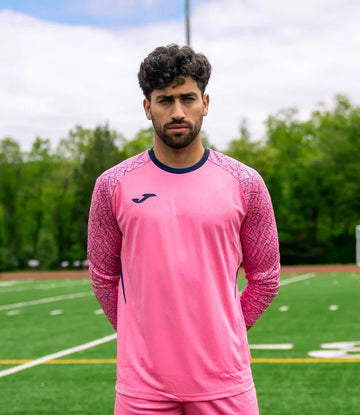
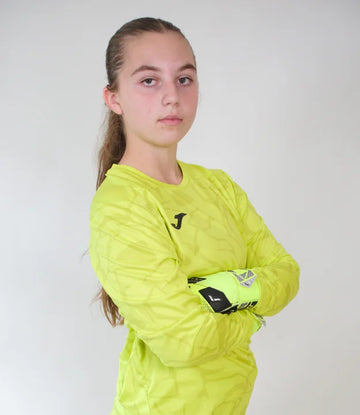
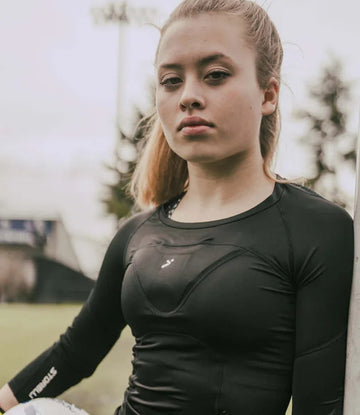

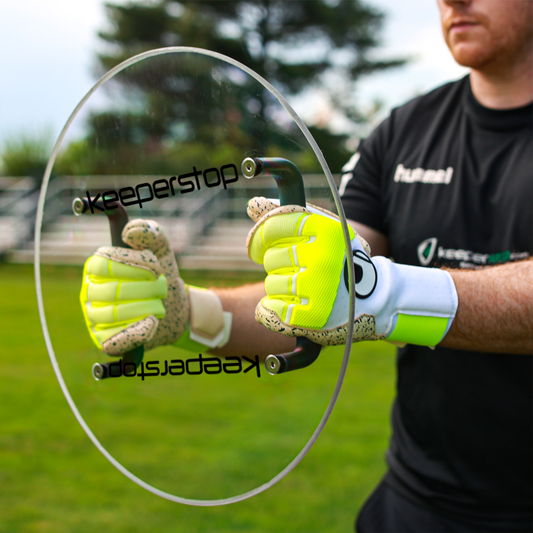
 Gloves
Gloves
 Jerseys
Jerseys
 Gear
Gear
 Brands
Brands
